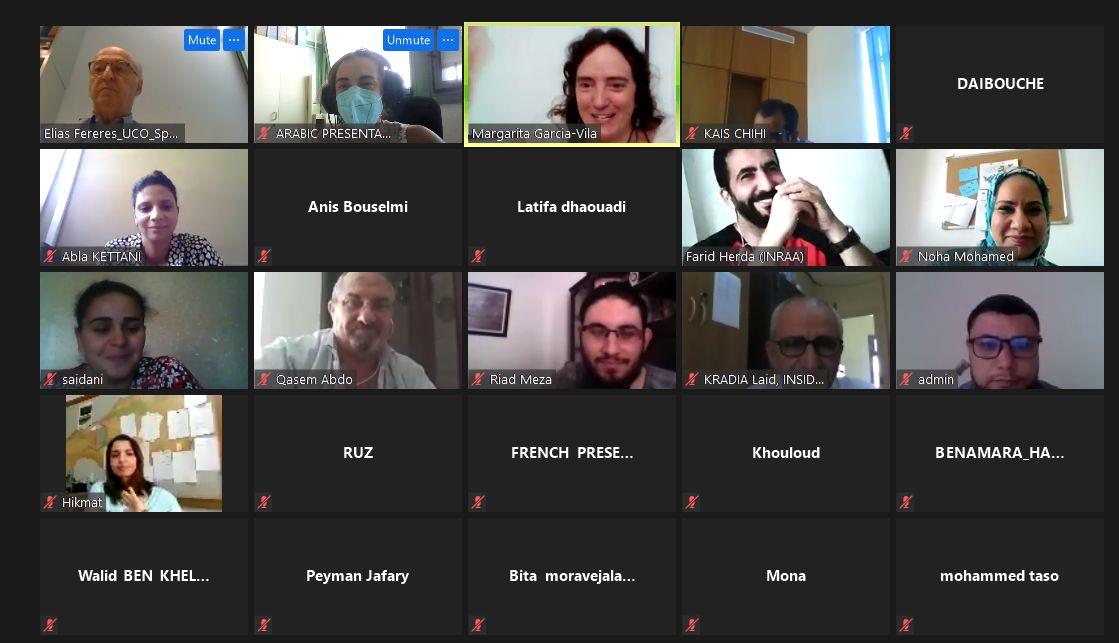Story : 70 experts from the NENA region learn to calibrate and validate the Aquacrop model for new crops

July 2021 – The Food and Agriculture Organization of the United Nations (FAO) in partnership with the University of Cordoba (UCO) have implemented an online training to 70 participants with the overall aim of calibrating and validating the process of the AquaCrop model for the participants conditions using their own dataset/s.
AquaCrop is a key tool for identifying strategies for enhancing water efficiency and productivity. Particularly, it is one of the most suitable crop models for simulating the yield response of crops to water, particularly under conditions in which water is a key limiting factor in crop production, such as in the NENA region. AquaCrop can be widely applicable under different climate and soil conditions, without the need for local calibration, once it has been properly parameterized for a particular crop species. Nevertheless, there are some parameters that are dependent on location, crop cultivar, and management practices, and must be fitted by the user.
The three-day training was implemented to 70 participants from the Water Efficiency, Productivity and Sustainability project, as well as professionals, engineers and researchers from the NENA region. The main objective of the training was to calibrate and validate the process of the model, where the specific objectives of the training included:
(1) delineating the calibration and validation processes for the AquaCrop model and describing the required datasets and how to obtain them;
(2) carrying out exercises needed to provide a deep understanding of the calibration/validation processes of AquaCrop by the participants;
(3) supporting the participants in their own calibration/validation efforts by providing adequate guidance throughout the training.
The first three sessions were devoted to first explain the approach and needs for calibration and validation and then, to delineate the procedures to be used in the two practical sessions that will follow. After each morning block, afternoon sessions were implemented where the participants carried out further work with additional practical exercises, bringing issues that might come up to be resolved with the trainers and discussed during Support Desk sessions. The results and procedures of the additional exercises have been provided to the participants after each Support Desk session. Both the presentation and the audio of the e-course were available in three languages: English, French and Arabic. Close collaboration with ACSAD allowed simultaneous translation and presentations into Arabic. All the participants who completed the assignments received a certificate of recognition of attendance to the e-training.
All the information about the model (software, manuals and youtube tutorials) is available in the following link: http://www.fao.org/aquacrop/resources/tutorials/en/
This activity is implemented by FAO under the regional project “Implementing the 2030 Agenda for water efficiency/productivity and water sustainability in NENA countries” under the regional Water Scarcity Initiative. This project is funded by the Swedish International Development Cooperation Agency.
